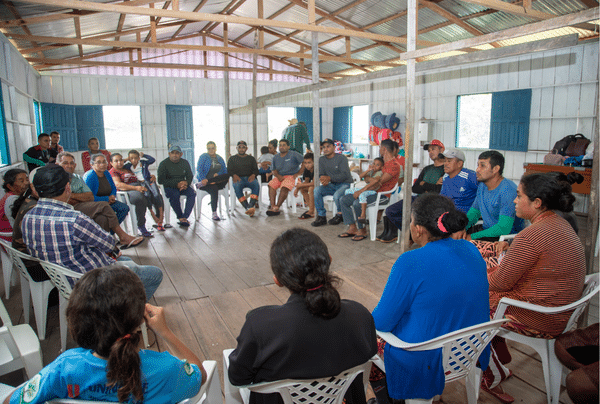The Mejuruá Project brings the Forest School to train young conservation leaders in the Amazon

Through a strategic partnership between the Mejuruá Project and the Government of the State of Amazonas, via the Educa+ Amazonas program, a new Forest School unit will be established in one of the communities of the Médio Juruá region to train its “future guardians.” This educational initiative, which will also be expanded to other communities through the BR Arbo project, aims to prepare young community leaders committed to environmental conservation and the sustainable development of the Amazon.
With an investment of US$1.5 million (R$7.4 million), BR Arbo is committed to investing not only in physical infrastructure, but also in the equipment and furniture necessary for the new school unit, which is fully aligned with the objectives of the Mejuruá Project.
With a unique curriculum, the Forest School offers an education rooted in the forest itself: students learn through the integration of scientific knowledge, traditional wisdom, and regenerative practices. The focus is on building sustainable solutions, strengthening local identity, and preparing skilled professionals to engage in green and regenerative economy models.
“The forest is the classroom, the textbook, and the teacher. Our goal is for these young people to become the protagonists of a new Amazon—where conservation and development go hand in hand. At the Mejuruá Project, we believe that true education is not just about passing on content. It’s about providing tools so that each young person understands their own value, strengthens their identity, and gains the autonomy to shape their own future. Our role is to open pathways, but they are the ones who will decide where to go. That is the essence of the sustainable transformation we seek,” says Maurizio Rocchi, Coordinator of the Mejuruá Project.
The arrival of the Forest School in the region marks a turning point in how education is approached in riverside communities. In addition to traditional subjects, students will have access to content focused on sustainable agriculture, the use of new ecological technologies, natural resource management, strengthening the açaí value chain, and community entrepreneurship with an emphasis on gender equity and inclusive development.
The project will also involve partnerships with universities to promote knowledge exchange, teacher training, and access to technical and higher education programs. Another strong point will be the improvement of educational infrastructure and the provision of scholarships and youth-focused programs, expanding the horizon of opportunities beyond municipal borders.
The Forest School in Médio Juruá is part of a broader effort to value traditional populations and integrate education, health, and environmental conservation—key pillars of truly sustainable development in the region.
